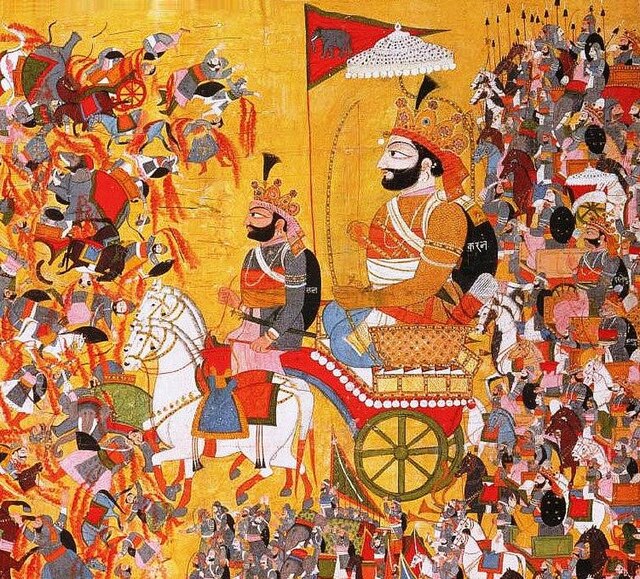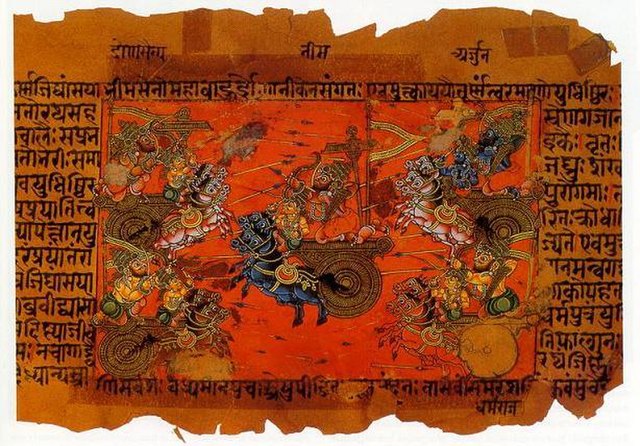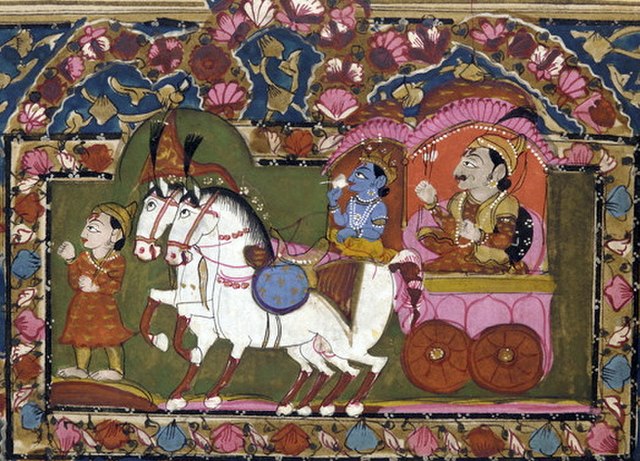Karna, also known as Vasusena, Anga-raja, and Radheya, is one of the main protagonists of the Hindu epic Mahābhārata. He is the son of the sun god Surya and princess Kunti, and thus a demigod of royal birth. Kunti was granted the boon to bear a child with desired divine qualities from the gods and without much knowledge, Kunti invoked the sun god to confirm it if it was true indeed. Karna was secretly born to an unmarried Kunti in her teenage years, and fearing outrage and backlash from society over her premarital pregnancy, Kunti had no choice but to abandon the newly born Karna adrift in a basket on the Ganges, in the hope that he finds foster parents. The basket is discovered, and Karna is adopted and raised by foster Sūta parents named Radha and Adhiratha Nandana of the charioteer and poet profession working for king Dhritarashtra.
A 19th-century artist's imagination of Karna
Karna inside the chariot fighting Ghatotkacha standing over horses, Kota, Rajasthan. This artwork – as Patung Satria Gatotkaca – is also found near the Denpasar airport, Bali, Indonesia.
Surya gives boon to Kunti
Karna offering an old poor man, bent with age and destitution, a Kavacha that is embedded in his arms and is retrieved by culling with a knife
The Mahābhārata is one of the two major Smriti texts and Sanskrit epics of ancient India revered in Hinduism, the other being the Rāmāyaṇa. It narrates the events and aftermath of the Kurukshetra War, a war of succession between two groups of princely cousins, the Kauravas and the Pāṇḍavas.
Manuscript illustration of the Battle of Kurukshetra
Krishna and Arjuna at Kurukshetra, 18th–19th-century painting
Modern depiction of Vyasa narrating the Mahābhārata to Ganesha at the Murudeshwara temple, Karnataka.
Sauti recites the slokas of the Mahabharata.








